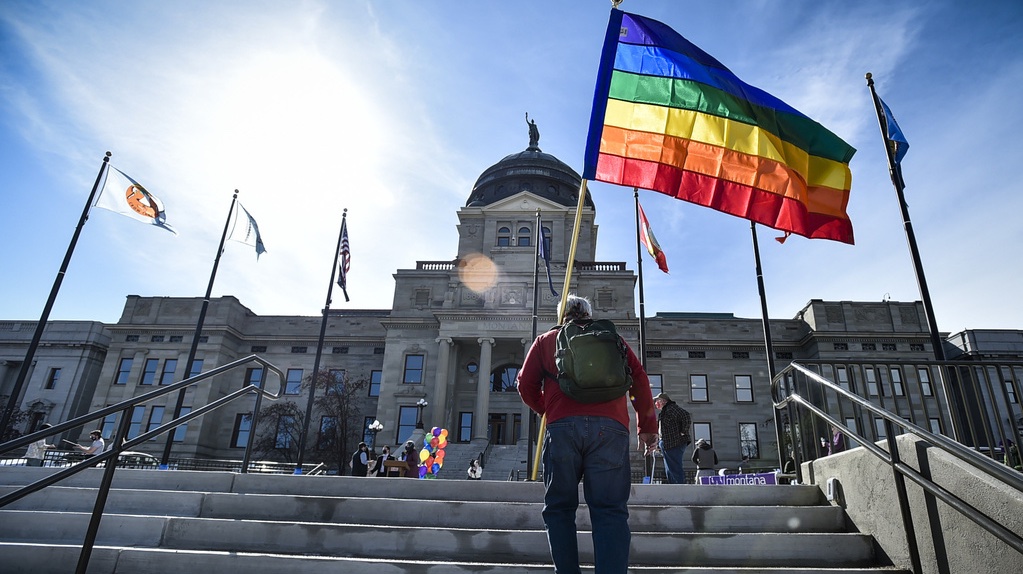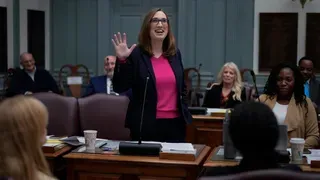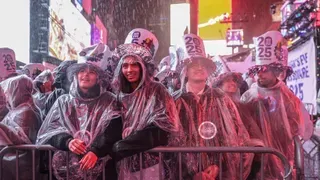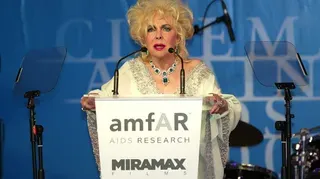September 28, 2023
Fla. School District Orders Removal of all Books with Gay Characters Before Slightly Backing Off
Terry Spencer READ TIME: 3 MIN.
Top officials at a Florida school district ordered the removal of all books and material containing LBGTQ+ characters and themes from classrooms and campus libraries, saying that was needed to conform to a state law backed by Gov. Ron DeSantis that critics have dubbed "Don't Say Gay."
Charlotte County Schools Superintendent Mark Vianello and the school board's attorney, Michael McKinley, were responding to questions from the district's librarians at a July meeting asking whether the bill, officially the "Florida Parental Rights in Education Act," required the removal of any books that simply had a gay character but no explicit sex scenes.
"Books with LBGTQ+ characters are not to be included in classroom libraries or school library media centers," the pair responded, according to a district memo obtained under a public information request by the Florida Freedom to Read Project. The nonprofit group, which opposes the law, provided the memo to The Associated Press on Wednesday.
The district later backed off a bit, allowing some exceptions for high school libraries. But Charlotte's policy remains one of the more stringent policies adopted by the state's 67 countywide school districts to enforce the bill.
The law was originally passed by the Legislature and signed by DeSantis in 2022 and strengthened last spring. The southwest Florida county between Fort Myers and Sarasota has about 17,000 students in its public schools. The Republican governor, who is running for his party's presidential nomination, won the county with 70% of the vote in 2022 as he cruised to reelection.
The school district did not respond to calls Wednesday from the AP seeking comment. The district told the news website Popular Information, which first reported the memo, that the document is not a verbatim transcript of the meeting, but it is an accurate reflection.
DeSantis and other Republicans have repeatedly said the measure is reasonable and that parents, not teachers, should be broaching subjects of sexual orientation and gender identity with their children. The governor has made cultural issues a major point of his presidential campaign, even taking on the Walt Disney Co. after it expressed opposition to the bill.
Florida Freedom to Read said Charlotte's policy is "evidence that fear over thoughtful decision making is winning the day." But the group says Florida Department of Education officials are to blame for any district confusion or overreach.
"Their failure to lead and use their power to benefit the future of Florida is a disservice to all Floridians, no matter their political leanings," the group said in a statement. "Parents want politics out of education. We want all students to feel safe and included, so they can focus on their education while in school. Removing all representation of LGBTQ+ people in literature goes against our very principles of living in a free and just, pluralistic society."
The department did not respond to a call and email Wednesday seeking comment.
At the July meeting, librarians were told by Vianello and McKinley that any mention of sexual orientation or gender identity is prohibited from prekindergarten through middle school and in high school, "unless supported by the state academic standards."
The librarians asked if that meant they had to remove a book even if, for example, it includes a secondary character who is gay or a main character with two moms or a gay best friend. The pair responded, "Yes," and added that ban includes books children may bring to school themselves, even if they are not pornographic or explicit.
"These characters and themes cannot exist," they responded, according to the memo.
The school district issued a statement to Popular Information this week clarifying some of the superintendent and attorney's remarks, saying some material with LGBTQ+ themes or characters would still be available in high school libraries.
"Books featuring LGBTQ characters are accessible in the media center for grades 9-12. While they may not be utilized for classroom instruction, these books are available for individual study and can be borrowed by students," the statement said.







